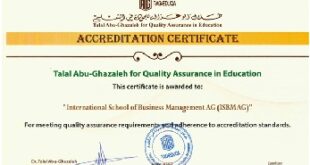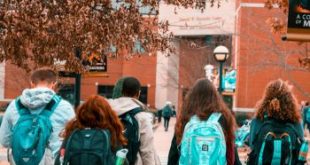
Bangalore, 5th August 2022: The subject areas of STEM (Science, Technology, Engineering, and Mathematics), together with the arts, life skills, and communication, are a good place to start when learning more about how early childhood curriculum and programming related to STEM.
The Indian environment in technology is changing rapidly and the next generation of the youngest country need a boost in their skill development, STEM can be the core of their education in understanding the newest technology and how is it working. The more the understanding, the more they will be able to create newer things and create a better India, the Nation of tomorrow.
Early STEM education encourages children to become confident and engaged learners as they progress into primary school and beyond, going beyond only knowing how to count or recognise the alphabet, these are the conventional abilities assumed to help children transition to school. Sharp observational abilities, critical thinking, and problem-solving are fundamental components of the STEM inquiry-based learning method, but they are equally crucial to all sectors of changing educational curricula that place a greater emphasis on using knowledge than on simply memorising it. In order to support early STEM education, develop metacognitive skills, and promote positive learning dispositions in the children’s future school years, parents and teachers should begin encouraging children’s natural curiosity and assisting them in deriving meaning from their explorations of the world around them.
Understanding the children’s interests is mostly accomplished through watching and listening to them as they go about their daily activities. Developing children’s motivation to engage in a scientific investigation requires taking into account their interests. Teachers should use STEM inquiry to help students think about what they already know, what they anticipate will happen during activities, and how to try new things. What most young children do is engage in discussion with you by having at least two back-and-forth exchanges and posing queries beginning with “who,” “what,” “where,” or “why,”. They describe the action taking place in a picture. When prompted, they state their first name and most of the time speak well enough for others to comprehend, said Uttam Panda, Founder, MADDY.
A recipe book or science kit is not necessary for STEM education, nor is expert knowledge. Pay attention to your child’s inquiries, and then let your own curiosity and inquisitiveness take over. By modelling real interest, participating actively, and letting kids design their own learning paths, educators can encourage STEM learning in their students. Teachers can act as the young scientists’ lab aids! It’s crucial to provide a rich learning environment to encourage discoveries and dialogues. Developing your own knowledge through training programmes like Little Scientists can help you generate resources and improve curriculum design.
He further elaborated that you have the chance to pique the youngsters’ curiosity by saying something like, “I wonder how long it would take for all this ice to melt.” Alternately, you may add, “I would want to learn how we could stop the ice cubes from melting so quickly.” This can serve as a starting point for future investigations or raise new inquiries. The child may start their own research by taking the glass of ice cubes outside to melt in the sun.
Engineering, technology, math, and science provide students with engaging, hands-on learning opportunities that build strong learning dispositions. They improve teamwork, critical thinking, and problem-solving skills in scientists. Teachers and educators can emphasise how commonplace activities like bug hotels and gardening aid in children’s development of STEM skills.
STEM fluency is demonstrated by early starts and immersion in everyday life, just like learning a language. Children are better able to develop ideas and ways of thinking when they have hands-on, inquiry-based experiences in the early years that include them in many different places, times, and activities. They might even produce a radish.
 Newspatrolling.com News cum Content Syndication Portal Online
Newspatrolling.com News cum Content Syndication Portal Online






